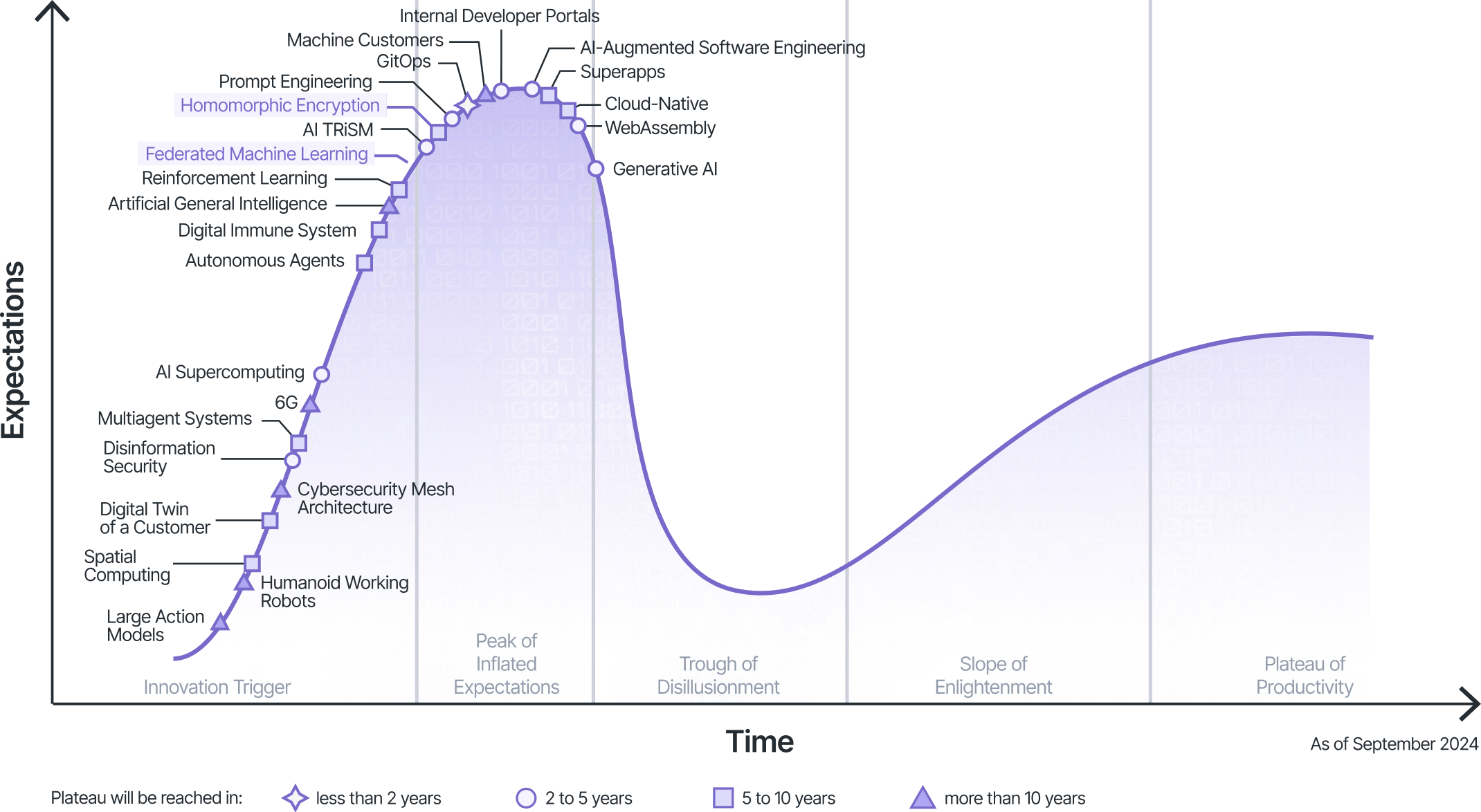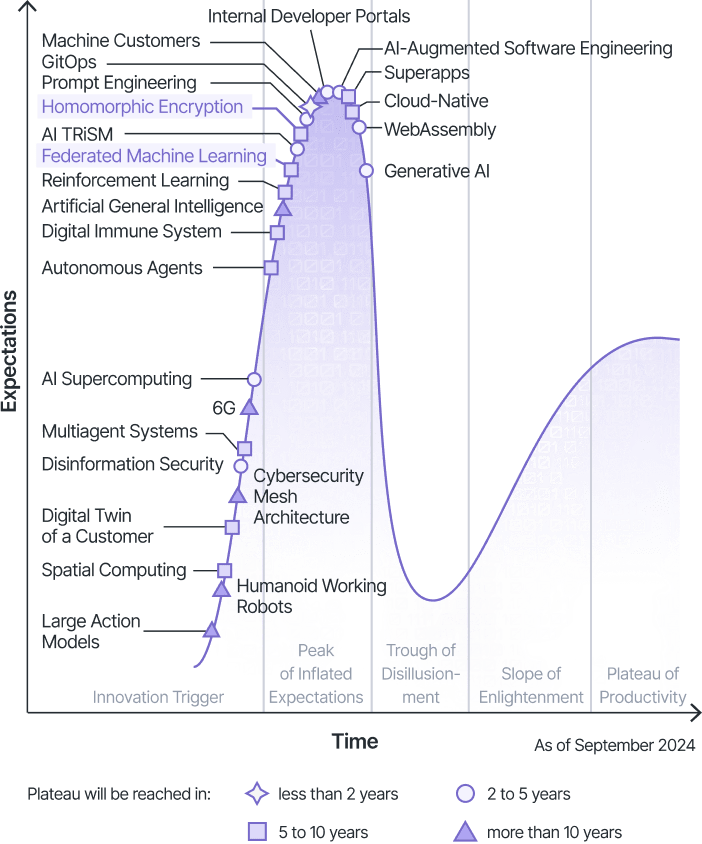artificial intelligence
Data owners frequently hesitate to share data with Machine Learning developers due to concerns about leaks, theft, illegal use, and protecting trade secrets
By 2025
80%
of the largest global organizations will have participated at least once in Federated Machine Learning to create more accurate, secure, and environmentally sustainable models.
60%
of large organizations will use Privacy-Enhancing Computation techniques to protect privacy in untrusted environments or for analytics purposes.


Ensuring data remains accessible only to the owner during transfer and processing, preventing access to its original or interpretable form by others
Ideal for those working with Machine Learning and Sensitive Data
Protecting data at all stages of ML development, from data transfer to model training and algorithm application
Compatible with a wide range of popular Data Types and ML Architectures
Secure transmission over the network
Secure storage
Training on secure data
A possible additional component - obtaining the network's response in a secure manner
Inference on secure data
Meet internal security and compliance standards to prevent project interruptions
Benefit
Enhance ML model quality
with secure data integration
Benefit
Monetize
datasets safely
Benefit
Stand out by ensuring
data confidentiality
Benefit
Comply with data
security regulations
Federated Learning
Building a Collective Brain from Scattered Thoughts.
FL allows multiple parties to contribute information to train a machine learning model, all while keeping their original data private.
It's like a collaborative brainstorming session where everyone contributes ideas without revealing their thought process.
Fully Homomorphic Encryption
Secure Data Processing without Decryption.
Imagine a world where your data remains encrypted even while it's being processed, analyzed, and shared.
FHE makes this a reality, enabling unprecedented data security and privacy.
Differential Privacy
Limits data leakage by adding random noise.